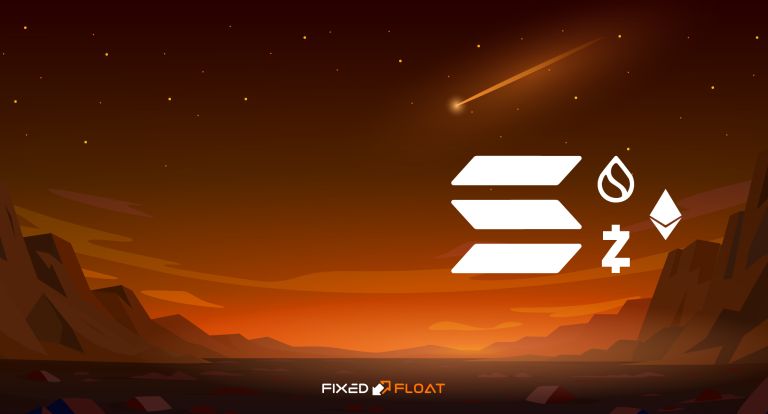Bitcoin Mining Difficulty Reaches All-Time High
Mining difficulty continues its steady ascent and has again reached an all-time high since the last recalculation. For the first time in the history of mining, the difficulty exceeded 50 T. per second. Mining is the process of mining new coins in networks based on the Proof-of-Work (PoW) consensus algorithm.
Mining difficulty is a variable that changes every 2,016 blocks, which is about two weeks on average. This change depends on the time taken to generate the previous 2016 blocks. The goal of the difficulty level is to keep the hash function guess time within about 10 minutes. If blocks are created faster, the difficulty increases, and if slower, then it decreases. Regular mining difficulty adjustments help control the rate at which new bitcoins are issued. The level of mining difficulty directly depends on the number of miners in the network. More miners lead to higher mining difficulty. If miners disconnect from the network, then the difficulty decreases.
Deutsche Telekom became a Polygon network validator
One of the leading telecommunications companies in Europe has decided to use its infrastructure not only to provide communications, but also to explore new sources of income, as well as improve the level of network security. Deutsche Telekom, a German company, is set to act as a validator for the Ethereum layer 2 scaling platform known as Polygon. She will join 100 validators providing staking and block verification services for the network and the Polygon Supernets solution.
Deutsche Telekom's subsidiary Deutsche Telekom MMS, which specializes in consulting services and software development, will act as a validator for the Polygon network on behalf of its parent. The main goal of this solution is to protect the Polygon Proof-of-Stake sidechain and the Supernets chain, which will lead to improved security, governance and protocol decentralization. Deutsche Telekom MMS will manage the full node, create new blocks, validate and participate in network consensus, and pass checkpoints to the main Ethereum network.
USDT reaches record capitalization
Tether, the leading stablecoin in the industry, hit a new record in market value on June 1st. So far, Tether (USDT) has reached an impressive $83.2 billion in market capitalization. Paolo Ardoino, CTO of the company, shared his commentary on this important achievement. He noted that today's figures indicate that users are striving for financial freedom. Once they are given access to tools, they enjoy trying them out. Despite some changes and hurdles related to transparency, Tether has proven to be trustworthy and customers are very appreciative of these efforts.
TON Foundation proposes to burn 50% of validator rewards
The TON Foundation has proposed a mechanism for burning 50% of the transaction fee. If it is implemented, with each transaction, part of the tokens will be burned, and the rest will be sent to the validator. This proposal is similar to Ethereum's EIP-1559 strategy, which brought inflation down on the network. However, in the case of TON, due to low transaction fees, such an initiative would probably not be as effective. The main developer of the TON Foundation expressed the opinion that with the growth of the network, this number could increase significantly, which would lead to a significant decrease in inflation of both the general and circulating supply of Toncoin.
TRX became available on the Ethereum blockchain
Justin Sun, the founder of the Tron project, happily announced an important event: the native TRX token is now available on the Ethereum blockchain thanks to the innovative BitTorrent bridge. This important innovation caused TRX to explode 10% in just one day. As a result, the asset took a well-deserved 12th place in the CoinGecko ranking by market capitalization, reaching an impressive mark of $7.6 billion.
Elon Musk accused of insider trading Dogecoin
Elon Musk has been the target of accusations in connection with alleged Dogecoin insider trading. There are allegations that the billionaire sold $124 million worth of DOGE in April, at the same time that he changed his profile logo to Twitter. As part of the class action lawsuit, Elon Musk is accused of deliberately raising the price of Dogecoin by more than 36,000% over the course of two years, and then deliberately allowing it to crash.
Avalanche surpasses 1 million active network users
Active users of the Avalanche Tier 1 Blockchain (AVAX) have reached an impressive 1 million per month, which is a historic achievement for this platform. Ava Labs, the company behind the Avalanche project, cited the recent launch of AvaCloud as the main reason for this growth. This innovative platform offers the ability to run and scale fully managed and custom "no code" custom blockchains. In early May, the Avalanche team partnered with cloud service provider Alibaba Cloud to develop a metaverse deployment platform, opening up new vistas for the Avalanche ecosystem.










